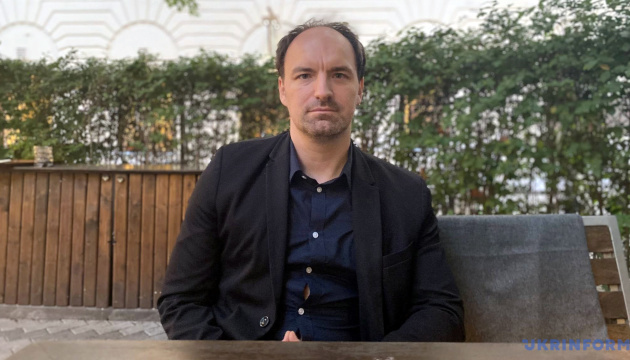
Austria’s political discourse around neutrality increases the country’s vulnerability to Russian disinformation.
This opinion was shared in an interview with Ukrinform by Dietmar Pichler, an Austrian expert on countering disinformation and founder of the Vienna-based Disinfo Resilience Network.
“I would say yes, the discourse around neutrality makes us more vulnerable to propaganda. Besides that, I would say all narratives, the intensity of propaganda and disinformation, and the eagerness to believe it are the same as in other Western European countries,” said Pichler.
According to him, the problem with neutrality lies in the fact that “the movement of so-called ‘peace activists’, but also Russia apologists, demand neutrality in a political sense, which in reality amounts to a pro-Russian stance.”
“Austria is only neutral in a military sense, and since it is an EU member, neutrality has become less important and less strict. History shows that even during the Cold War, Austria was part of the West, and not “between the blocs,” as some people believed – or still demand – today,” Pichler noted.
He said that Russia’s key information operation goals in Austria reflect the typical disinformation campaigns it conducts across Europe.
“One specific tactic we are seeing is that Russian propaganda – including official channels such as the embassy and the Ministry of Foreign Affairs – sometimes accuses Austria of violating its neutrality. The aim is to provoke a reaction and generate public pressure against the Austrian government,” he added.
As in other Western countries, the primary channel for Russian disinformation in Austria is the internet, especially social media. However, other media also play a significant role.
“We have pro-Russian books in our bookstores. We have pro-Russian academics (worldwide). We have pro-Russian narratives in our talk shows (the false balance problem), and we see Russian diplomats and propagandists as interview partners – not only on fringe media channels,” Pichler said.
He emphasized that while Austrian society is aware of Russian propaganda on the internet, it often fails to recognize it through other, more subtle channels.
As Ukrinform previously reported, Austria’s Directorate of State Protection and Intelligence (DSN) uncovered a large-scale Russian disinformation campaign in the country during its investigation of a Bulgarian citizen suspected of spying for Russia.
According to the DSN, just weeks after the full-scale invasion of Ukraine began, a group working for Russian intelligence was activated. In early 2022, they started planning a broad disinformation campaign across German-speaking countries, with a particular focus on Austria.
The campaign’s objective was to manipulate public opinion in Austria, turning it against Ukraine and President Volodymyr Zelensky. To achieve this, Russian agents used online platforms, the media space, and even offline tactics such as stickers and graffiti. The design of these actions was deliberately crafted to create the impression that they originated from pro-Ukrainian activists.
Source: Austria’s neutrality making it more vulnerable to Russian disinformation – expert



